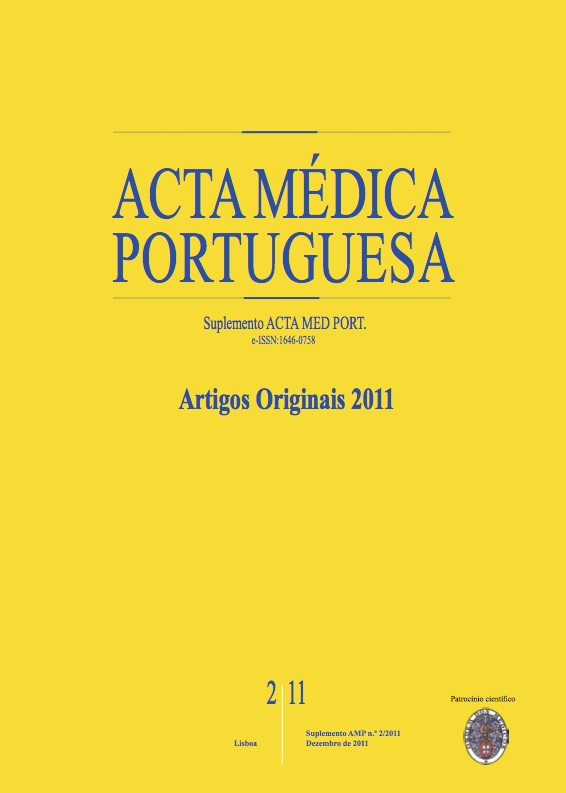Nutritional factors associated with dyslipidemia in users of service in primary health care.
DOI:
https://doi.org/10.20344/amp.1448Abstract
Dyslipidemias are relevant to public health because are one of the major risk factors for Non-Communicable Diseases and Disorders, especially cardiovascular diseases.Identify factors associated with dyslipidemias on users of Primary Health Care Center.Users were assessed through the nutritional anamnesis (demographic data, consumption of foods and nutrients and morbidity) and anthropometry. Was performed descriptive analysis, t-Student, Chi-Square and Mann Whitney tests (p<0.05) and multivariate analysis employing the decision tree through CHAID algorithm.It was evaluated 105 users, 93.3% were female, mean 52.3 years (±13.6) and the prevalence of dyslipidemia was 29.8%. Dyslipidemic subjects had higher mean age (p=0.057), higher daily consumption of calories (p=0.013) and sugar (p=0.026), higher inadequate consumption of eggs (p=0.043) and lower percentage of adequacy monounsaturated fatty acids (MUFA) (p=0.007). In contrast, had higher proportion of adequacy of lipid (p=0.017), lower mean weight (p=0.044) and lower inadequate intake of fatty meat (p=0.005). Multivariate analysis showed that insufficient consumption of MUFA (p=0.005) and inadequate intake of lard (p=0.021) were the main variables which influenced the presence of dyslipidemia.The results show that important dietary changes for the prevention and control of dyslipidemia have not been implemented, demonstrating the importance of nutritional interventions aimed at to clarify new dietary strategies, such as reduce consumption of sugar and to maintain an adequate consumption of lipid fractions.Downloads
Downloads
How to Cite
Issue
Section
License
All the articles published in the AMP are open access and comply with the requirements of funding agencies or academic institutions. The AMP is governed by the terms of the Creative Commons ‘Attribution – Non-Commercial Use - (CC-BY-NC)’ license, regarding the use by third parties.
It is the author’s responsibility to obtain approval for the reproduction of figures, tables, etc. from other publications.
Upon acceptance of an article for publication, the authors will be asked to complete the ICMJE “Copyright Liability and Copyright Sharing Statement “(http://www.actamedicaportuguesa.com/info/AMP-NormasPublicacao.pdf) and the “Declaration of Potential Conflicts of Interest” (http:// www.icmje.org/conflicts-of-interest). An e-mail will be sent to the corresponding author to acknowledge receipt of the manuscript.
After publication, the authors are authorised to make their articles available in repositories of their institutions of origin, as long as they always mention where they were published and according to the Creative Commons license.









